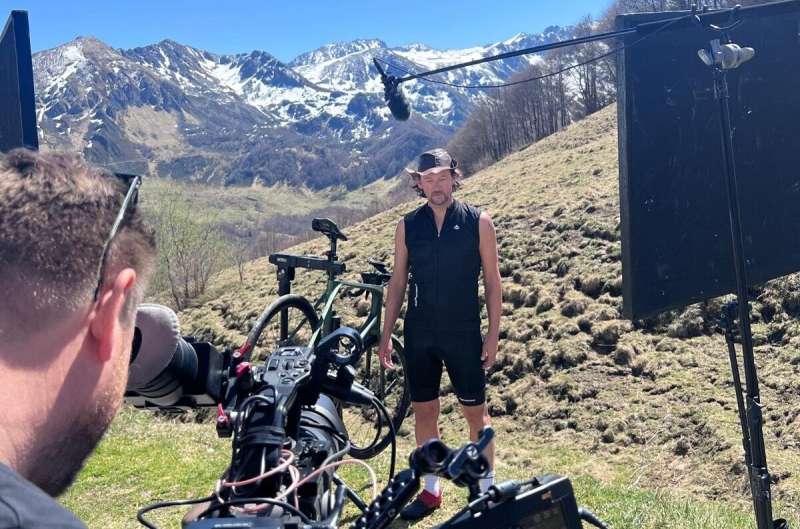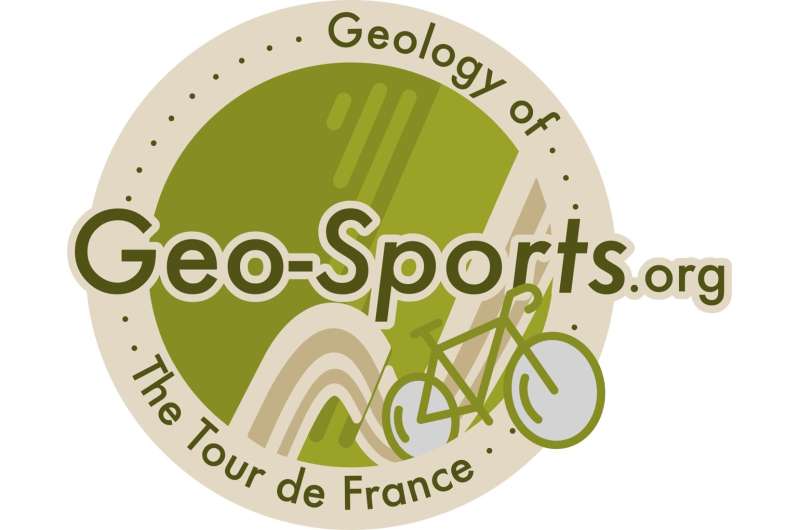This article has been reviewed according to Science X's editorial process and policies. Editors have highlighted the following attributes while ensuring the content's credibility:
fact-checked
trusted source
proofread
No Tour de France without geology

It's hard to imagine a cycling season without the contributions of Geo-Sports.org. After the successful editions of previous years, the sports commentaries for the Tour stages will once again be supplemented with mini-lectures.
In a light-hearted way, presenters Douwe van Hinsbergen and Marjolein Naudé of Utrecht University take the cycling audience on their journey through the landscape and the geological history of the Tour de France.
The films will also be shown on the Dutch national TV and the British channel ITV. As is tradition, daily blogs appear on Geo-Sports.org, again this year provided by enthusiastic experts from various countries, from Europe to the U.S.
"The blogs are written by students, recent graduates, young researchers, but also established scientists who came up with an idea themselves," says geologist Douwe van Hinsbergen, initiator of Geo-Sports.org.
"A clear sign that the project is becoming more and more well-known and people are happy to participate. This year we were also approached by RCS Sport, the organization behind the Tour of Italy, Milan-San Remo and the Tour of Lombardy, among others. That's promising for next year!"
Top wines and raw materials
Every time the road goes up or down, there is a geological reason for it. And Geo-Sports elaborates on that explanation. The Utrecht initiative translates the importance of earth sciences to a large audience by explaining the geology surrounding sporting events.
"Understanding Earth's properties and its history provides foundations to our changing society in a wide variety of ways," Van Hinsbergen clarifies.
"Through Geo-Sports, we show, in a playful way, how all of that Earth history plays a role in society and our natural environment. For example, we visit a limestone hillside cut by a big fault, which together provide just the right conditions for the top French wines. Of course, we look at plate tectonics because without it a Tour de France would be a flat affair, but also at the raw materials needed for the construction of a bicycle, because these are eventually harvested from the rocks below our feet."
In other words: without geology, a Tour de France would not be possible!

Lessons
In the meantime, the team behind Geo-Sports.org is already thinking about the future. "Just as we have reached a new audience through the sports reports, we want to do the same through secondary schools, through the Geo-Classroom." And not just in Geography lessons, the geologist emphasizes.
"We want to build a bridge between earth scientists and high school teachers, to help develop teaching materials that can give interesting and unexpected examples to explain Physics, Chemistry, Biology, and Mathematics. Because they all play a major role in earth science. Teachers at secondary schools can therefore always contact us, to build a collaboration."
Crowdfunding
The annual production of the films and blogs takes quite a lot of time, but Van Hinsbergen and his team are happy to do it. They offer their services free of charge, as do the blog writers of other institutes from all over the world, in addition to their daily work.
Provided by Utrecht University


















